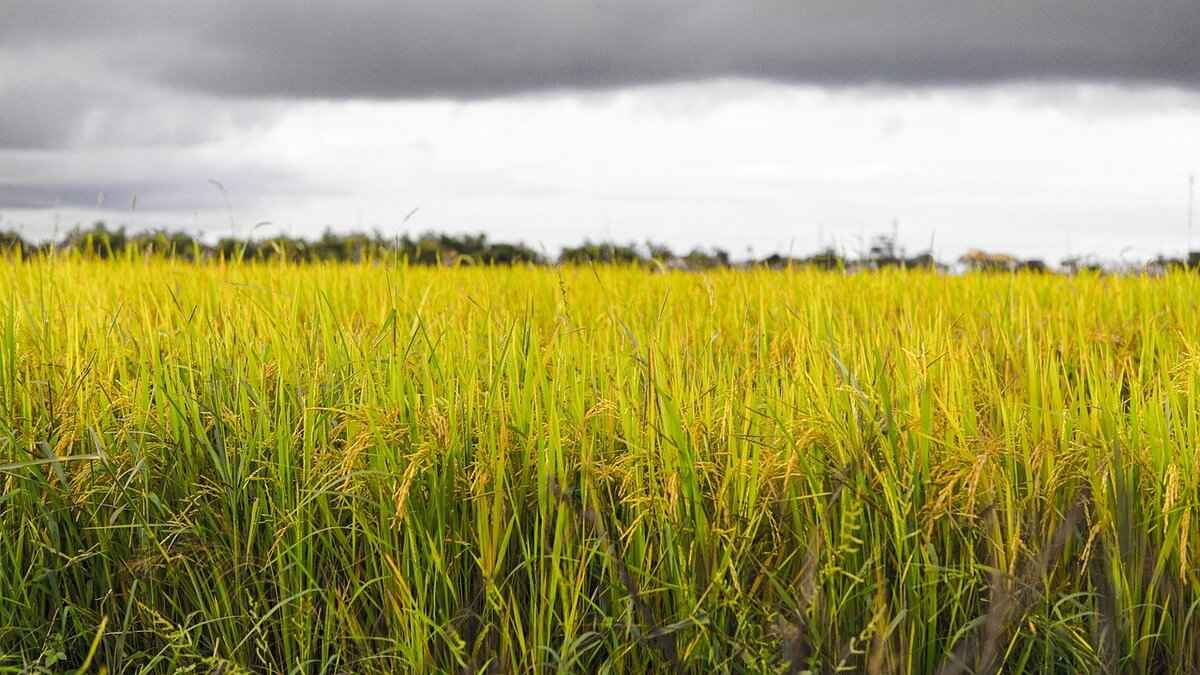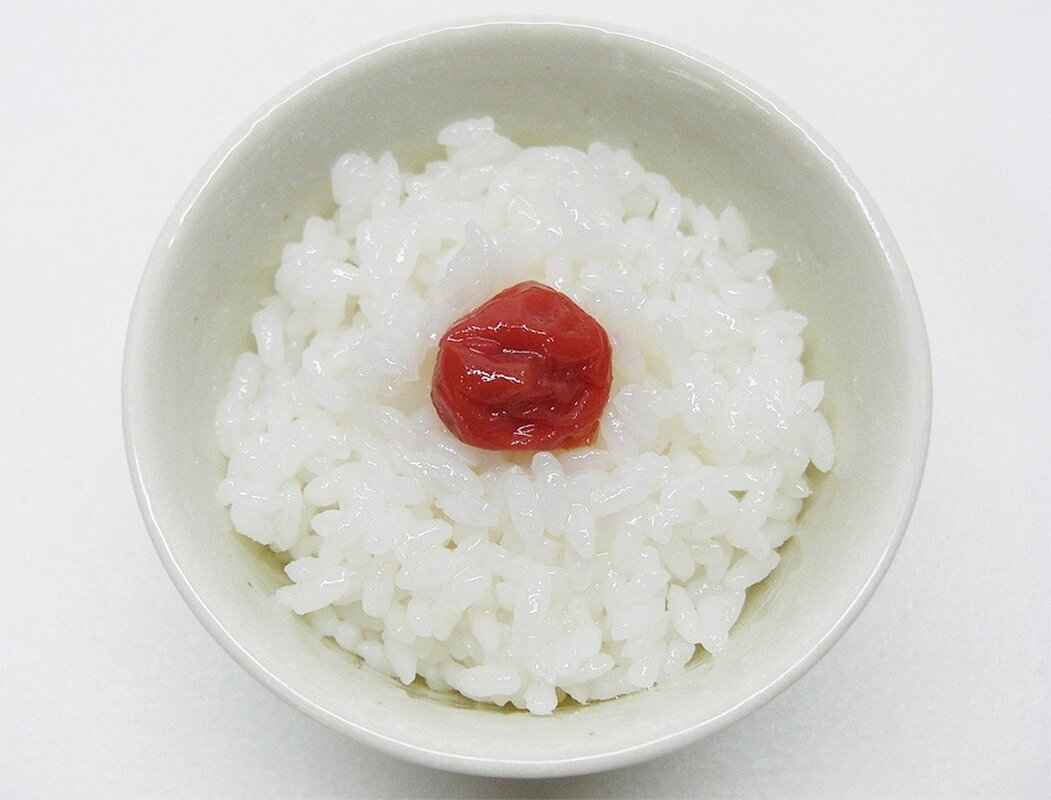This article explores the significance of rice in Asian culinary traditions, examining its diverse varieties, cooking methods, and cultural importance across different countries. Rice is not merely a staple food; it is a cornerstone of many Asian cultures and plays a vital role in both daily meals and special occasions.
What Are the Different Varieties of Rice in Asia?
Rice comes in numerous varieties across Asia, each with unique flavors, textures, and culinary uses. Some of the most popular types include:
- Jasmine Rice: Predominantly grown in Thailand, this fragrant rice is known for its floral aroma and slightly sticky texture.
- Basmati Rice: Hailing from India and Pakistan, basmati is long-grained and aromatic, making it ideal for biryanis and pilafs.
- Sticky Rice: Common in Southeast Asian countries, this rice is often used in desserts and is known for its clumpy texture.
- Brown Rice: A whole grain option, brown rice retains its bran and germ, offering more nutrients and a nuttier flavor.
How Is Rice Cooked in Asian Cultures?
Cooking methods for rice vary widely in Asia, influenced by regional traditions and available resources. Common techniques include:
- Steaming: This method preserves nutrients and enhances flavor, often used in dishes like dim sum.
- Boiling: A straightforward method, boiling is commonly used for jasmine and basmati rice.
- Frying: Fried rice dishes are popular across Asia, incorporating various ingredients for flavor.
What Is the Role of Steaming in Rice Preparation?
Steaming is a prevalent method in many Asian cuisines, as it retains the rice’s natural flavor and nutrients. The process involves placing rice in a bamboo steamer or a pot, allowing steam to cook it evenly. This technique is particularly favored in Chinese and Thai cuisines.
How Do Different Countries Steam Rice?
Each Asian country has its unique approach to steaming rice. For instance:
- In China, bamboo baskets are often used, which impart a subtle flavor to the rice.
- India utilizes clay pots, which enhance the earthy flavors of the rice.
What Are the Best Practices for Steaming Rice?
To achieve perfectly steamed rice, it is essential to rinse the grains thoroughly to remove excess starch, which can cause clumping. Additionally, using the right water-to-rice ratio is crucial for optimal texture.
What Are the Popular Fried Rice Dishes?
Fried rice is a beloved dish across Asia, featuring various ingredients and flavors. Some notable varieties include:
- Yangzhou Fried Rice: A classic Chinese dish with shrimp, ham, and vegetables.
- Nasi Goreng: Indonesia’s spicy fried rice, often served with fried eggs and sambal.
- Kimchi Fried Rice: A Korean favorite, incorporating spicy kimchi and topped with a fried egg.
What Cultural Significance Does Rice Hold in Asia?
Rice is more than just a staple food; it holds immense cultural significance in many Asian societies. It is often associated with prosperity and fertility, playing a central role in rituals and celebrations. For example, during the Lunar New Year, rice dishes symbolize abundance and good fortune.
How Is Rice Incorporated into Festivals?
Rice often features prominently in Asian festivals, symbolizing prosperity and fertility. Specific festivals, such as the Thai New Year (Songkran), celebrate rice as a vital component of traditional meals.
What Are Traditional Rice-Based Dishes for Celebrations?
Many traditional dishes made from rice are prepared during celebrations, highlighting its importance in communal gatherings and familial bonds. For instance, glutinous rice cakes are enjoyed during the Mid-Autumn Festival in China.
How Is Rice Used Beyond Cooking in Asian Cultures?
Rice has numerous uses beyond the kitchen, including its role in crafts, medicine, and rituals. In several Asian cultures, rice is utilized in crafts, such as making rice paper or decorative rice-based art, showcasing its versatility.
How Is Rice Used in Traditional Medicine?
Rice also plays a role in traditional medicine practices, where it is believed to have health benefits and is used in various remedies. For example, rice water is often used for its soothing properties in skincare.
What Are the Future Trends in Rice Consumption in Asia?
As global dietary patterns evolve, rice consumption in Asia is also changing. Emerging trends include:
- Health-Conscious Choices: Many are opting for whole grain or organic rice varieties.
- Technological Innovations: Advances in agricultural technology are reshaping rice production, impacting sustainability and yield.
How Is Technology Influencing Rice Production?
Current innovations in rice farming are focused on enhancing productivity while reducing environmental impact, ensuring that rice remains a staple in the future.
What Are the Health Trends Affecting Rice Choices?
With rising health consciousness, many are re-evaluating their rice consumption. This includes exploring alternative grains and healthier cooking methods to maintain the nutritional value of rice.

What Are the Different Varieties of Rice in Asia?
Rice is a cornerstone of Asian cuisine, serving as a staple food for billions and a vital ingredient in countless dishes. The diversity of rice varieties found across Asia is remarkable, with each type offering its own unique flavors, textures, and culinary applications. In this section, we will explore some of the most popular rice varieties in Asia, highlighting their distinct characteristics and uses.
- Jasmine Rice: Predominantly grown in Thailand, Jasmine rice is known for its fragrant aroma and slightly sticky texture when cooked. This long-grain rice is often served with Thai dishes and is a favorite for its ability to absorb flavors.
- Basmati Rice: Hailing from the Indian subcontinent, Basmati rice is celebrated for its long grains and nutty flavor. It is commonly used in biryanis and pilafs, where its fluffy texture enhances the overall dish.
- Sticky Rice: Also known as glutinous rice, this variety is primarily consumed in Laos, Thailand, and northern Vietnam. Its unique sticky quality makes it ideal for desserts and traditional dishes like larb and mango sticky rice.
- Short-Grain Rice: Popular in Japan and Korea, short-grain rice is known for its round shape and chewy texture. It is often used in sushi and rice bowls, where its stickiness helps hold the grains together.
- Brown Rice: Gaining popularity for its health benefits, brown rice retains its bran layer, making it more nutritious. It is used across various Asian cuisines, providing a nutty flavor and chewy texture.
- Black Rice: Sometimes referred to as forbidden rice, black rice is rich in antioxidants and is often used in desserts and traditional dishes in China and Southeast Asia. Its striking color and unique flavor make it a popular choice for innovative culinary creations.
Each of these rice varieties not only contributes to the flavor profile of a dish but also reflects the cultural significance and agricultural practices of the regions where they are grown. Understanding these differences can enhance one’s appreciation of Asian cuisine and the intricate role rice plays in it.
In addition to these popular types, there are numerous regional varieties that showcase the rich biodiversity of rice cultivation in Asia. For instance, red rice, which is cultivated in various countries, is known for its health benefits and earthy flavor, while aromatic rice varieties like Kalijira from Bangladesh are prized for their fragrant qualities.
As we delve deeper into the culinary uses of these rice varieties, it becomes clear that rice is not merely a food item but a vital component of cultural identity across Asia. Each type of rice brings its own story, making it an essential ingredient in the tapestry of Asian culinary traditions.

How Is Rice Cooked in Asian Cultures?
Rice is a fundamental component of Asian cuisine, serving as a staple food and a cultural symbol. The cooking methods for rice across Asia are as diverse as the regions themselves, shaped by local traditions, available resources, and the unique characteristics of different rice varieties. Here, we will explore various popular cooking techniques, their implications for flavor and texture, and how they reflect the cultural significance of rice in Asian societies.
Rice preparation techniques vary significantly across Asian cultures, each contributing to the final dish’s flavor and texture. The most common methods include:
- Boiling: This is the most straightforward method, where rice is cooked in a pot of boiling water. This technique is prevalent in many countries, including India and Thailand, where rice is often boiled and then drained.
- Steaming: A favored method in countries like China and Japan, steaming rice preserves its nutrients and enhances its natural flavor. This method often involves using bamboo steamers or specialized rice cookers.
- Frying: Fried rice dishes, popular in places like Indonesia and Malaysia, involve cooking pre-cooked rice in a hot wok with various ingredients, creating a savory and aromatic dish.
- Pressure Cooking: In many households, pressure cookers are used to prepare rice quickly while retaining moisture and flavor, a method commonly found in Indian kitchens.
Steaming rice is not just a cooking method; it is an art form in many Asian cultures. This technique helps retain essential nutrients and results in a fluffy texture. The process involves soaking the rice before placing it in a steaming vessel, allowing it to absorb moisture gradually. The steam gently cooks the rice, ensuring even heat distribution, which is crucial for achieving the perfect consistency.
Different countries have unique approaches to steaming rice:
- China: Bamboo steamers are commonly used, allowing the rice to absorb the subtle flavors of the bamboo.
- India: Clay pots are often preferred, imparting a distinct earthy flavor to the rice.
- Japan: The use of high-quality short-grain rice, steamed to perfection, is central to many traditional dishes.
Fried rice is a beloved dish across Asia, showcasing the versatility of rice. This method allows for the incorporation of various ingredients, from vegetables to proteins, making it a complete meal. The high heat used in frying caramelizes the rice, providing a delightful texture and flavor. Popular variations include:
- Nasi Goreng: An Indonesian fried rice dish often seasoned with sweet soy sauce and served with fried eggs.
- Yangzhou Fried Rice: A Chinese classic featuring shrimp, ham, and vegetables, known for its colorful presentation.
- Kimchi Fried Rice: A Korean favorite that incorporates spicy fermented vegetables, adding depth and heat.
The choice of cooking method significantly influences the texture of rice. For instance, boiling can lead to a softer, more porridge-like consistency, while steaming results in fluffy, separated grains. Fried rice, on the other hand, often has a slight crunch, thanks to the high heat and quick cooking time. Understanding these differences helps chefs and home cooks alike choose the best method for their desired outcome.
In summary, the diverse cooking methods for rice in Asian cultures not only enhance flavor and texture but also reflect the rich culinary heritage of the region. From steaming to frying, each technique offers a unique approach to enjoying this staple food, making rice a central element of Asian cuisine.
What Is the Role of Steaming in Rice Preparation?
Steaming is a traditional cooking method widely embraced in various Asian cuisines, renowned for its ability to preserve nutrients while enhancing the natural flavor of rice. This technique not only contributes to the rice’s texture but also plays a vital role in cultural practices surrounding food. In this section, we will explore the significance of steaming rice, the techniques involved, and the benefits it brings to the table.
Steaming rice is a preferred method due to its numerous advantages. Unlike boiling, which can lead to nutrient loss, steaming retains essential vitamins and minerals. This gentle cooking process allows the rice to absorb moisture evenly, resulting in a fluffy and aromatic dish. Moreover, steaming helps maintain the rice’s natural flavor, making it a perfect accompaniment to various dishes.
There are several techniques for steaming rice, each varying by region and tradition. Here are some popular methods:
- Bamboo Steamer: Common in Chinese cuisine, this method uses bamboo baskets that allow steam to circulate freely, imparting a delicate flavor to the rice.
- Clay Pot Steaming: In India, clay pots are often used to steam rice, which enhances the earthy flavors and provides a unique texture.
- Electric Rice Cookers: Modern technology has introduced electric rice cookers that simplify the steaming process, ensuring consistent results with minimal effort.
Each Asian culture has its unique approach to steaming rice:
- Japanese Cuisine: In Japan, rice is often steamed in a donabe (a clay pot), which helps retain moisture and flavor.
- Thai Cuisine: Thai sticky rice is typically steamed in a sticky rice basket, allowing it to become tender and chewy.
- Korean Cuisine: In Korea, rice is steamed in a rice cooker or pot, often combined with various grains for added flavor and nutrition.
Steaming rice not only enhances its taste but also contributes to a healthier diet. Some notable health benefits include:
- Lower Fat Content: Steaming requires no added fats, making it a healthier option compared to fried rice.
- Retained Nutrients: The steaming process preserves essential nutrients, making it a more nutritious choice.
- Digestibility: Steamed rice is easier to digest, making it suitable for various dietary needs.
To achieve the best results when steaming rice, consider the following tips:
- Rinse the Rice: Rinsing removes excess starch, preventing the rice from becoming gummy.
- Use the Right Water Ratio: Generally, a 1:1.5 ratio of rice to water works well for steaming.
- Let It Rest: Allow the rice to rest after steaming for a few minutes to enhance its texture.
In conclusion, steaming rice is an essential technique in Asian cooking that not only preserves nutrients but also enhances flavor and texture. By understanding the various methods and cultural practices surrounding this cooking technique, one can appreciate the depth and richness that steamed rice brings to Asian cuisine.
How Do Different Countries Steam Rice?
Steaming rice is a fundamental cooking technique across Asia, with each country showcasing its own unique traditions and methods. This culinary practice not only preserves the nutritional value of the rice but also enhances its flavor, making it a staple in many Asian households. Below, we explore how different countries approach the steaming of rice, highlighting their distinctive methods and cultural significance.
In Chinese cuisine, steaming rice is often done using bamboo steamers. These traditional steamers consist of stacked bamboo baskets that allow steam to circulate freely, cooking the rice evenly. The process typically involves soaking the rice beforehand, which helps achieve a fluffy texture. The use of bamboo not only adds a subtle aroma but also reflects the deep-rooted cultural practices of China, where bamboo is revered for its versatility.
Japanese households often rely on electric rice cookers for steaming rice. This method is celebrated for its precision and convenience, allowing for perfectly cooked rice with minimal effort. The rice is usually rinsed multiple times to remove excess starch before being steamed. This meticulous preparation results in a sticky, yet fluffy rice, ideal for sushi and other traditional dishes. The Japanese approach emphasizes quality and consistency, reflecting their culinary philosophy.
In Indian cooking, steaming rice is commonly achieved using clay pots, known as handis. This method imparts a unique flavor to the rice, thanks to the porous nature of clay, which allows moisture to escape slowly. The rice is often cooked with spices and herbs, making it a flavorful accompaniment to various curries and dals. The traditional use of clay pots connects Indian cuisine to its roots, emphasizing the importance of local materials in cooking.
Thailand is renowned for its sticky rice, which is traditionally steamed in a woven bamboo basket lined with cloth. This method allows the rice to absorb steam while retaining its moisture, resulting in a chewy texture. Sticky rice is often served with mango or used as a base for various Thai dishes, showcasing its versatility. The communal aspect of sharing sticky rice reflects the Thai culture of togetherness and hospitality.
In Vietnamese cuisine, steaming rice is often done using modern electric steamers or rice cookers. This approach is favored for its speed and efficiency, making it suitable for busy households. The rice is typically soaked and rinsed before cooking, similar to other Asian methods. Vietnamese rice dishes often incorporate fresh herbs and vegetables, highlighting the country’s emphasis on freshness and balance in flavors.
In the Philippines, rice is steamed using a method similar to that of other Southeast Asian countries, but often incorporates local ingredients like coconut milk for added flavor. This variation is particularly popular in traditional dishes such as puto and bibingka, which are steamed rice cakes enjoyed during celebrations. The use of local ingredients not only enhances the flavor but also connects the dish to Filipino cultural practices.
In conclusion, the steaming of rice in Asia is a reflection of each country’s culinary identity, shaped by local ingredients, cultural practices, and historical influences. Whether using bamboo steamers, clay pots, or modern appliances, the techniques employed highlight the significance of rice in Asian cuisines. By understanding these diverse methods, we gain insight into the rich tapestry of flavors and traditions that define Asian culinary heritage.
What Are the Best Practices for Steaming Rice?
Steaming rice is an essential skill in Asian cuisine, known for producing perfectly cooked grains that are fluffy and flavorful. Understanding the best practices for steaming rice can significantly enhance your culinary experience, ensuring even cooking and optimal texture. Here, we will explore the key techniques and tips to achieve the best results.
Steaming rice is favored for several reasons. First, it helps retain the nutrients that can be lost during boiling. Additionally, steaming allows for even heat distribution, which is crucial for achieving the desired texture. Unlike boiling, where rice can become waterlogged, steaming ensures that each grain remains separate and fluffy.
- Choose the Right Rice: Different varieties of rice require different steaming times and water ratios. For example, jasmine rice typically needs less water than basmati rice.
- Rinse the Rice: Rinsing removes excess starch, which can make rice sticky. Rinse until the water runs clear to ensure a fluffy texture.
- Soak the Rice: Soaking rice for at least 30 minutes can help it absorb water and cook more evenly.
- Use the Right Equipment: A bamboo steamer is traditional in many Asian cultures, but a metal steamer or even a pot with a lid can work well.
- Water Ratio: A general rule is to use a 1:1 ratio of rice to water, but this can vary. Always refer to specific instructions for the rice variety you are using.
The steaming time can vary based on the type of rice and the quantity being cooked. Generally, white rice takes about 20-25 minutes, while brown rice may require 45-50 minutes. It’s best to check for doneness by tasting a few grains.
- Overcrowding the Steamer: Ensure there is enough space for steam to circulate around the rice for even cooking.
- Not Monitoring Water Levels: If using a pot, keep an eye on the water level to prevent it from boiling dry.
- Skipping the Soaking Step: This can lead to uneven cooking and a less desirable texture.
To elevate the flavor of your steamed rice, consider adding aromatic ingredients such as:
- Herbs: Bay leaves or pandan leaves can infuse a delightful fragrance.
- Broth: Steaming rice in vegetable or chicken broth instead of water adds depth to the flavor.
- Spices: A pinch of salt or spices like cardamom can enhance the overall taste.
Perfectly steamed rice is not just about taste; it also plays a crucial role in the overall presentation of a dish. Fluffy rice can be a beautiful base for stir-fries, curries, and other dishes, enhancing the dining experience. Furthermore, mastering the art of steaming rice can boost your confidence in the kitchen, allowing you to experiment with various recipes and cuisines.
In summary, adhering to these best practices for steaming rice will not only improve the quality of your meals but also enrich your understanding of Asian culinary traditions. With a little practice and attention to detail, you can achieve rice that is consistently delicious and perfectly textured.
What Are the Popular Fried Rice Dishes?
Fried rice is a dish that has captured the hearts and palates of many across Asia. Its versatility, combined with the ability to incorporate a variety of ingredients, makes it a staple in numerous cultures. This section explores some of the most popular fried rice recipes and their regional variations, highlighting the unique flavors and ingredients that define each style.
The popularity of fried rice can be attributed to its adaptability. It can be made with leftover rice and a mix of ingredients, making it a practical choice for many households. Additionally, the dish is often customized to reflect local tastes and available ingredients, resulting in a wide array of flavors and styles.
- Chinese Fried Rice: One of the most well-known types, this dish typically includes soy sauce, vegetables, and proteins such as chicken, shrimp, or pork. The use of wok frying gives it a distinct smoky flavor.
- Thai Fried Rice (Khao Pad): Characterized by its fragrant jasmine rice, Thai fried rice often features ingredients like basil, lime, and a variety of vegetables, with the addition of chili for a spicy kick.
- Indonesian Nasi Goreng: This fried rice is known for its bold flavors, often seasoned with sweet soy sauce, shrimp paste, and served with a fried egg on top. It’s a dish that embodies the rich culinary traditions of Indonesia.
- Japanese Fried Rice (Chahan): Typically made with short-grain rice, Chahan is often flavored with dashi or soy sauce and includes ingredients like green onions, peas, and sometimes meat or seafood.
- Indian Fried Rice (Pulao): In India, fried rice is often spiced with turmeric and cumin, incorporating vegetables and sometimes nuts. It can be served as a side dish or a main course, showcasing the diverse flavors of Indian cuisine.
The beauty of fried rice lies in its flexibility. Common ingredients include:
- Rice: Day-old rice is preferred as it is drier and separates easily when fried.
- Vegetables: Common choices include peas, carrots, bell peppers, and green onions.
- Proteins: Options range from chicken and shrimp to tofu and eggs.
- Seasonings: Soy sauce, oyster sauce, and various spices are used to enhance flavor.
The technique used in cooking fried rice can significantly impact its flavor and texture. Wok frying is a popular method, allowing for high heat that creates a unique char and texture. Stir-frying quickly ensures that the ingredients remain crisp, while the rice becomes slightly crispy on the edges.
- Use day-old rice for the best texture.
- Prep all ingredients before cooking to ensure quick and efficient stir-frying.
- Cook ingredients in batches if necessary to avoid overcrowding the pan.
- Don’t forget to season your fried rice well; the right balance of flavors is key.
In conclusion, fried rice is not just a dish; it’s a culinary canvas that reflects the diverse flavors and traditions of Asian cuisine. With its various regional adaptations and the endless possibilities of ingredients, fried rice remains a beloved choice for many, both at home and in restaurants.

What Cultural Significance Does Rice Hold in Asia?
Rice is not merely a dietary staple in Asia; it is a profound element woven into the cultural fabric of many communities. In various Asian societies, rice symbolizes life, sustenance, and prosperity. This section will explore the multifaceted roles rice plays in rituals, celebrations, and daily life, highlighting its significance beyond just being a food source.
In many Asian households, rice is the central component of every meal. It serves as the foundation upon which other dishes are built, often accompanying vegetables, meats, and sauces. In countries like Japan and China, rice is not just food; it is a symbol of hospitality and warmth. Families gather around rice bowls, sharing stories and creating bonds over meals. This daily ritual emphasizes the importance of rice in fostering community and familial ties.
Rice plays a pivotal role in numerous festivals across Asia, often symbolizing fertility, prosperity, and abundance. For instance, during the Chinese New Year, sticky rice cakes are prepared as a symbol of unity and good fortune. Similarly, in India, rice is a key ingredient in the harvest festival of Pongal, where it is cooked and offered to deities as a gesture of gratitude for a bountiful harvest.
Many traditional dishes made from rice are integral to celebrations, showcasing the grain’s importance in communal gatherings. In Thailand, sticky rice is often served during weddings, while in Vietnam, rice is transformed into banh chung, a square-shaped cake made during the Tet festival. These dishes not only highlight rice’s versatility but also its role in cultural identity and heritage.
Rice is deeply embedded in religious practices across Asia. In Buddhism, rice is often offered to monks as a form of almsgiving, symbolizing respect and gratitude. In Hindu rituals, rice is used in pujas (worship ceremonies) and is often sprinkled as a blessing during weddings and other auspicious occasions. This sacred use of rice reinforces its status as a symbol of purity and sustenance.
Beyond culinary uses, rice finds its way into various crafts and art forms. In Japan, rice is used to create rice paper, a delicate material that is integral to traditional art forms such as origami and calligraphy. In other cultures, rice is used in decorative art, showcasing the versatility of this grain in creative expressions.
In several Asian cultures, rice is not only a food source but also a component of traditional medicine. It is believed to possess health benefits, such as aiding digestion and providing energy. In Chinese medicine, rice water is often recommended for its soothing properties, especially for infants and those recovering from illness.
In summary, rice holds a profound cultural significance in Asia, serving as a staple food that transcends mere sustenance. Its roles in daily life, festivals, religious rituals, crafts, and medicine illustrate its integral place in the hearts and traditions of Asian societies. Understanding the importance of rice offers a deeper appreciation for the rich cultural heritage it represents.
How Is Rice Incorporated into Festivals?
Rice is not merely a staple food in Asia; it is a symbol of life, prosperity, and fertility, deeply woven into the fabric of various cultural celebrations and festivals. Across the continent, rice plays a central role in numerous festivities, reflecting its importance in agricultural societies and its connection to the cycle of life.
Several festivals across Asia highlight rice’s significance, showcasing its role in rituals and communal gatherings. Here are a few notable examples:
- Chinese New Year: During this festival, rice dishes such as sticky rice dumplings and rice cakes are prepared to symbolize wealth and prosperity. The round shape of rice cakes signifies unity and completeness, making them a staple during family reunions.
- Thai Rice Harvest Festival: Celebrated in November, this festival honors the rice harvest with rituals that express gratitude to the rice goddess. Traditional dances, offerings, and ceremonies are held, emphasizing the community’s reliance on rice for sustenance.
- Oni Matsuri: In Japan, this festival involves the preparation of mochi (rice cakes) to celebrate the harvest. Participants engage in rice pounding, a communal activity that strengthens bonds and showcases the importance of rice in Japanese culture.
- Pongal: This four-day harvest festival in South India celebrates the rice harvest with the cooking of Pongal, a dish made from newly harvested rice. The festival includes rituals to thank the sun god and the cattle that assist in farming.
Rice’s centrality in these festivals is not merely due to its status as a food source. It embodies the spiritual and cultural values of the communities. For instance, rice is often used in rituals to invoke blessings for a bountiful harvest, reflecting its role in ensuring food security for families and communities. Additionally, the act of sharing rice dishes during festivals fosters social cohesion and strengthens family ties.
In many Asian cultures, rice is used as an offering in religious ceremonies. It is often presented to deities as a gesture of gratitude and respect. For example:
- In Hinduism, rice is used in pujas (prayer rituals) as a symbol of abundance and prosperity.
- In Buddhism, rice may be offered during ceremonies to honor ancestors, symbolizing the sustenance provided by previous generations.
- In Shinto practices, rice is used in rituals to purify spaces and invite blessings.
Each festival features unique rice-based dishes that hold cultural significance. Some examples include:
- Kimchi Fried Rice: A popular dish during Korean celebrations, this dish combines leftover rice with spicy kimchi, symbolizing the idea of repurposing and sustainability.
- Chè: In Vietnam, this sweet rice pudding is often served during festivals as a dessert, representing the sweetness of life.
- Arroz con Pollo: This traditional dish made with rice and chicken is often prepared for family gatherings and celebrations in Latin American countries, showcasing the fusion of cultures.
In conclusion, rice is much more than a dietary staple in Asian cultures; it is a powerful symbol of life, community, and tradition. Its incorporation into festivals and rituals highlights its vital role in cultural identity and social cohesion, making it an essential element of Asian heritage.
What Are Traditional Rice-Based Dishes for Celebrations?
Rice is a fundamental ingredient in many Asian cultures, serving not only as a staple food but also as a symbol of unity and celebration. During special occasions, rice-based dishes take center stage, reflecting the rich culinary traditions and communal spirit of various regions. Celebrations often bring families and communities together, and the preparation of traditional rice dishes plays a crucial role in these gatherings.
Across Asia, rice is transformed into an array of delightful dishes that are prepared during festivals, weddings, and family reunions. These dishes often carry significant cultural meanings and are steeped in history. Here are some notable rice-based dishes that are often featured in celebrations:
- Jollof Rice: A beloved dish in West Africa, Jollof rice is a vibrant one-pot meal made with tomatoes, onions, and various spices. It is a staple at parties and weddings, symbolizing togetherness and joy.
- Sticky Rice: In countries like Thailand and Laos, sticky rice is often served during festivals and special occasions. It is typically paired with sweet or savory dishes and is a symbol of prosperity.
- Chè: This Vietnamese dessert made from glutinous rice and various ingredients like beans, fruits, and coconut milk is commonly enjoyed during Lunar New Year celebrations, symbolizing good fortune.
- Biriyani: A fragrant and flavorful rice dish from South Asia, biriyani is often prepared during weddings and festive occasions. The layering of marinated meat and aromatic spices with rice signifies abundance and celebration.
- Sushi: In Japan, sushi rice is a key component of this iconic dish, often enjoyed during celebrations such as birthdays and New Year festivities. The meticulous preparation reflects the care and artistry involved in Japanese cuisine.
These dishes not only highlight the versatility of rice but also emphasize its role in fostering communal bonds and familial connections. The act of preparing and sharing rice-based meals brings people together, creating a sense of belonging and cultural identity.
Rice holds a special place in many Asian cultures, often symbolizing fertility, prosperity, and abundance. During celebrations, the preparation of rice dishes is often accompanied by rituals and traditions that enhance their significance. For instance, in Chinese culture, rice is considered a symbol of wealth, and serving it during festivities is believed to invite good luck for the coming year.
Moreover, the preparation of these dishes often involves family members, reinforcing family ties and the passing down of culinary traditions from one generation to the next. This communal cooking experience not only strengthens relationships but also preserves cultural heritage.
Each rice-based dish carries with it a story that reflects the cultural identity of its origin. The ingredients, cooking methods, and accompanying rituals vary widely across different regions, showcasing the diversity of Asian culinary practices. For example, the use of spices in biriyani speaks to the rich history of trade and cultural exchange in South Asia, while the simplicity of sticky rice highlights the agricultural traditions of Southeast Asia.
In conclusion, traditional rice-based dishes are more than just food; they are a vital part of celebrations that embody the spirit of community, family, and cultural identity. As we continue to honor these culinary traditions, we also celebrate the shared values and connections that rice has fostered across generations.

How Is Rice Used Beyond Cooking in Asian Cultures?
Rice is a staple food that transcends its culinary uses, finding a place in various aspects of life across Asian cultures. Its versatility extends beyond the kitchen, encompassing crafts, traditional medicine, and cultural rituals. This section delves into the fascinating applications of rice beyond cooking, highlighting its significance in daily life and cultural practices.
In many Asian cultures, rice serves as a medium for creativity and craftsmanship. One of the most notable uses is in the creation of rice paper, which is integral to many traditional arts. This paper is made from the pith of the rice plant and is used for calligraphy, painting, and even wrapping food. The fine texture and durability of rice paper make it a preferred choice for artists and artisans.
- Decorative Art: Artists often use rice grains to create intricate mosaics and decorative pieces, showcasing the grain’s versatility.
- Rice-Based Crafts: In some regions, rice is used in making traditional ornaments and jewelry, adding cultural significance to artistic expression.
Rice is not only valued for its nutritional benefits but also plays a crucial role in traditional medicine across Asia. Various cultures incorporate rice into their healing practices, believing it promotes health and well-being.
- Digestive Health: Rice water, the starchy water left after cooking rice, is often consumed to soothe digestive issues, particularly in children.
- Skin Treatments: Ground rice is used in natural exfoliants and face masks, believed to enhance skin health and appearance.
Rice holds profound cultural significance in many Asian societies, often symbolizing prosperity and fertility. It is an essential component in various rituals and celebrations.
- Weddings: In many cultures, rice is thrown at newlyweds as a blessing for fertility and abundance.
- Harvest Festivals: Celebrations such as the Chinese Mid-Autumn Festival and the Thai Loy Krathong involve rice as a symbol of gratitude for the harvest.
Beyond its ceremonial uses, rice is woven into the fabric of daily life in many Asian cultures. It serves as a symbol of sustenance and community.
- Family Gatherings: Rice dishes are often central to family meals, fostering a sense of togetherness and cultural identity.
- Daily Rituals: In some cultures, rice is offered to ancestors as a sign of respect and remembrance, reinforcing familial bonds.
In conclusion, rice is much more than a dietary staple in Asian cultures. Its applications in crafts, medicine, and rituals illustrate its multifaceted role in society. Understanding these diverse uses not only enriches our appreciation of rice but also highlights its integral place in the cultural heritage of Asia.
What Are the Craft Uses of Rice?
Rice, a staple food in many Asian cultures, transcends its culinary uses and finds a place in various crafts. This section delves into the fascinating craft uses of rice, highlighting its versatility and significance beyond the kitchen.
In several Asian cultures, rice is utilized in crafts, showcasing its adaptability and cultural importance. The following are some prominent craft applications of rice:
- Rice Paper Production: Rice is a key ingredient in the creation of rice paper, a traditional material used in art and crafts. This paper is made by soaking, grinding, and then spreading rice flour into thin sheets. It is commonly used for calligraphy, painting, and even in culinary applications such as spring rolls.
- Decorative Rice Art: Many artisans create stunning decorative pieces using colored rice. By dyeing rice in vibrant colors, artists can assemble intricate mosaics and designs that are used in home decor or as festival decorations. These artworks often reflect cultural themes and are popular during celebrations.
- Rice in Rituals: In various Asian traditions, rice is used in ceremonial crafts. For instance, in Hindu weddings, rice is often incorporated into decorative elements, symbolizing prosperity and fertility. This practice highlights the spiritual significance of rice in cultural rituals.
- Textile and Fabric Embellishment: In some cultures, rice grains are used to embellish textiles. Artisans sew rice grains onto fabrics to create unique patterns and textures, adding a tactile element to their creations. This method is often seen in traditional garments and accessories.
- Rice Grain Jewelry: Innovative artisans have also ventured into jewelry-making using rice grains. These pieces are often handcrafted, showcasing the beauty of rice in a new light. Rice jewelry can symbolize purity and simplicity, making it a popular choice for those seeking meaningful adornments.
Beyond traditional crafts, rice is also employed in educational settings. Teachers often use rice in various projects to teach children about colors, counting, and even art. For example, filling jars with colored rice can create a sensory experience for young learners, enhancing their understanding of different concepts.
Here are a few popular craft projects that utilize rice:
- Rice Sensory Bottles: These bottles filled with colored rice provide a calming sensory experience for children. They can be used for relaxation or as a tool for focus.
- Decorative Rice Jars: Clear jars filled with layers of colored rice can serve as beautiful centerpieces or home decor items. They are often customized for different occasions.
- Rice-Based Collages: Artists can create collages using rice as a primary material, allowing for a unique texture and depth to their artwork.
In conclusion, the craft uses of rice in Asian cultures are as diverse as the rice varieties themselves. From traditional practices to modern educational projects, rice continues to inspire creativity and cultural expression. Its significance extends far beyond the dinner table, making it an integral part of the artistic landscape in many societies.
How Is Rice Used in Traditional Medicine?
Rice, a staple food in many Asian cultures, is not only significant in culinary traditions but also plays a vital role in traditional medicine. Various cultures have long believed in the health benefits of rice, utilizing it in numerous remedies and practices. This article delves into the ways rice is incorporated into traditional medicine, highlighting its perceived health benefits and applications.
In many Asian societies, rice is revered for its nutritional properties. It is often considered a source of energy and is believed to aid in digestion. The following are some of the key health benefits attributed to rice:
- Digestive Health: Rice, especially white rice, is easy to digest and is often recommended for individuals recovering from gastrointestinal issues.
- Energy Source: Being rich in carbohydrates, rice is viewed as a vital energy source, providing the necessary fuel for daily activities.
- Gluten-Free Option: Rice is naturally gluten-free, making it an excellent alternative for those with gluten intolerance or celiac disease.
Rice is utilized in various traditional remedies, often combined with other natural ingredients. Here are some common applications:
- Rice Water: The water left after rinsing rice is rich in nutrients and is used as a tonic for skin health. It is believed to help with skin irritation and promote a healthy complexion.
- Rice Flour: Ground rice is used in face masks and scrubs, known for its exfoliating properties. It is thought to soothe the skin and provide a natural glow.
- Rice Porridge: Often consumed during illness, rice porridge is gentle on the stomach and is believed to provide nourishment without overwhelming the digestive system.
Different varieties of rice are believed to have unique medicinal properties. For instance:
- Brown Rice: Known for its high fiber content, brown rice is often recommended for improving digestion and maintaining a healthy weight.
- Black Rice: This variety is rich in antioxidants and is thought to have anti-inflammatory properties, making it a popular choice in traditional remedies.
In many cultures, rice is not only a dietary staple but also a component of traditional healing practices. For example:
- Rituals and Offerings: In some Asian cultures, rice is offered in rituals to invoke blessings for health and prosperity.
- Medicinal Recipes: Traditional medicine practitioners often incorporate rice into herbal concoctions aimed at treating various ailments.
Rice is also a part of holistic health practices, where it is believed to balance the body’s energies. Some holistic approaches include:
- Detoxification: Rice is sometimes used in detox diets, believed to help cleanse the body of impurities.
- Mindfulness and Eating: The preparation and consumption of rice can be a meditative practice, promoting mindfulness and a deeper connection to food.
In conclusion, rice holds a prominent place in traditional medicine across Asia, with various health benefits and applications. Its versatility extends beyond the kitchen, making it a valuable component of holistic health practices. By understanding the medicinal uses of rice, we can appreciate its role not only as a food source but also as a natural remedy.

What Are the Future Trends in Rice Consumption in Asia?
As the world becomes increasingly interconnected, rice consumption in Asia is undergoing significant changes. This transformation is influenced by a variety of factors, including globalization, health trends, and technological advancements. Understanding these emerging trends is crucial for grasping the future of rice in Asian cuisine.
One of the most notable trends is the shift towards healthier rice options. With rising health consciousness among consumers, there is a growing preference for whole grain and organic rice varieties. Brown rice, for instance, is gaining popularity due to its higher nutritional value compared to white rice. Many consumers are now seeking out rice that is not only delicious but also nutrient-rich.
Globalization has introduced a plethora of international cuisines to Asian consumers. This exposure has led to an increased interest in diverse rice dishes from around the world. For example, sushi rice from Japan and risotto rice from Italy are becoming more common in Asian households. Such trends reflect a broader culinary curiosity and a willingness to experiment with new flavors and textures.
Technological advancements are reshaping the landscape of rice production in Asia. Precision farming techniques, such as the use of drones and satellite imagery, are being employed to optimize yield and reduce waste. These innovations not only enhance productivity but also promote sustainability, addressing concerns about environmental impact. Additionally, biotechnology is paving the way for the development of climate-resilient rice varieties, which can withstand adverse weather conditions and ensure food security.
As dietary patterns evolve, the demand for rice alternatives is also on the rise. Quinoa, millet, and other grains are gaining traction as consumers explore gluten-free and low-carb options. This shift could potentially impact traditional rice consumption, prompting producers to adapt and diversify their offerings to cater to changing preferences.
The way rice is prepared and consumed is also changing. Traditional cooking methods are being complemented by modern techniques, such as pressure cooking and rice cookers, which save time and enhance convenience. Additionally, the rise of meal kits and ready-to-eat rice products reflects a demand for quick, hassle-free meal solutions without compromising on taste.
Looking ahead, the future of rice in Asian cuisine appears dynamic and diverse. The integration of health-conscious options, coupled with a willingness to embrace global influences, will likely shape the rice market in the coming years. Furthermore, as sustainability becomes a priority, the emphasis on eco-friendly practices in rice production will continue to grow.
In conclusion, the evolving landscape of rice consumption in Asia is a reflection of broader global trends. As consumers become more health-conscious and adventurous in their culinary choices, rice will undoubtedly adapt to meet these new demands. The combination of tradition and innovation will ensure that rice remains a staple in Asian cuisine while embracing the future.
How Is Technology Influencing Rice Production?
Advancements in agricultural technology are significantly transforming rice production, enhancing both yield and sustainability. This section delves into the current innovations that are reshaping rice farming practices across the globe.
Modern rice farming is witnessing a surge in technological innovations that aim to improve productivity and reduce environmental impact. Some of the most notable advancements include:
- Precision Agriculture: Utilizing GPS technology and drones, farmers can monitor crop health and soil conditions in real-time, allowing for targeted interventions that optimize resource use.
- Genetic Engineering: The development of genetically modified rice varieties that are resistant to pests and diseases is helping to increase yields while minimizing the need for chemical pesticides.
- Automated Farming Equipment: The introduction of automated tractors and harvesters reduces labor costs and increases efficiency in planting and harvesting rice.
Water management is crucial in rice farming, and smart irrigation systems are revolutionizing this aspect. These systems use sensors to monitor soil moisture and weather conditions, ensuring that water is used efficiently. The benefits include:
- Water Conservation: By applying water only when necessary, these systems help conserve this precious resource, which is vital in rice cultivation.
- Improved Crop Health: Consistent and optimal watering leads to healthier plants, which can result in higher yields.
Sustainability is becoming increasingly important in rice production. Farmers are adopting practices that not only enhance productivity but also protect the environment. Key sustainable practices include:
- Crop Rotation: Integrating rice with other crops helps improve soil health and reduce pest populations.
- Integrated Pest Management (IPM): This approach combines biological, cultural, and chemical practices to manage pests in an environmentally friendly way.
Data analytics is playing a pivotal role in modern agriculture, including rice production. By analyzing data from various sources, farmers can make informed decisions that enhance productivity. Key aspects include:
- Yield Prediction: Advanced algorithms can predict crop yields based on historical data, weather patterns, and soil conditions, allowing farmers to plan better.
- Market Analysis: Understanding market trends through data analytics helps farmers decide when to sell their rice for maximum profit.
Despite the numerous benefits, the adoption of new technologies in rice farming is not without challenges. Some of the obstacles include:
- Cost of Technology: The initial investment required for advanced farming technologies can be prohibitive for small-scale farmers.
- Training and Education: Farmers need proper training to effectively use new technologies, which can be a significant barrier in rural areas.
In conclusion, the integration of technology in rice production is paving the way for a more efficient and sustainable future. As farmers continue to embrace these innovations, the potential for increased yields and reduced environmental impact becomes increasingly attainable.
What Are the Health Trends Affecting Rice Choices?
In recent years, there has been a noticeable shift in dietary preferences, particularly in relation to staple foods like rice. As individuals become increasingly health-conscious, their choices regarding rice consumption are evolving. This section explores the various health trends influencing rice varieties and preparation methods, providing insights into how people are adapting their diets for better health outcomes.
- Preference for Whole Grains: Many consumers are shifting towards whole grain options, including brown rice, which retains its bran and germ layers, offering more fiber, vitamins, and minerals compared to white rice.
- Low-Carb Diets: With the popularity of low-carbohydrate diets, such as the ketogenic diet, some individuals are reducing their rice intake altogether or opting for alternatives like cauliflower rice or konjac rice.
- Gluten-Free Options: As gluten sensitivity and celiac disease awareness rises, rice is becoming a favored grain for those seeking gluten-free diets, leading to increased demand for rice-based products.
- Organic and Non-GMO Choices: Health-conscious consumers are also gravitating towards organic and non-GMO rice varieties, driven by concerns over pesticide use and genetic modification.
In response to these health trends, rice producers are innovating. For instance, black rice and red rice are gaining popularity due to their higher antioxidant content and unique flavors. These varieties are often marketed as “superfoods,” appealing to health-conscious consumers looking for nutritious alternatives.
Brown rice is often touted for its numerous health benefits. It is rich in fiber, which aids in digestion and helps maintain a healthy weight. Additionally, brown rice has a lower glycemic index than white rice, making it a better option for those managing blood sugar levels. Its nutrient profile includes essential minerals like magnesium and phosphorus, contributing to overall health.
The way rice is prepared can significantly affect its nutritional value. Steaming or boiling rice without excessive oil or added sugars can help preserve its nutrients. Moreover, incorporating vegetables and lean proteins into rice dishes enhances their health benefits, creating balanced meals that align with dietary goals.
Portion control is crucial in maintaining a healthy diet. While rice can be a nutritious component of meals, consuming large quantities can lead to excess calorie intake. Health-conscious individuals are encouraged to measure their servings and pair rice with nutrient-dense foods, such as leafy greens and lean meats, to create satisfying and balanced meals.
In many Asian cultures, rice is often accompanied by a variety of vegetables and proteins, promoting a balanced diet. As health trends evolve, traditional practices are being revisited and adapted to incorporate more whole grains and nutrient-rich ingredients. This cultural shift not only preserves culinary heritage but also aligns with modern health ideals.
Advancements in agricultural practices are also contributing to healthier rice options. Researchers are developing biofortified rice varieties that are enriched with essential vitamins and minerals, aiming to combat malnutrition in vulnerable populations. These innovations reflect a growing awareness of the nutritional quality of rice and its potential impact on public health.
As health consciousness continues to rise, the landscape of rice consumption is evolving. With a focus on whole grains, portion control, and innovative cooking methods, consumers are making informed choices that not only enhance their health but also celebrate the rich culinary traditions associated with rice. This dynamic interplay between health trends and rice consumption is reshaping how this staple food is perceived and enjoyed across cultures.
Frequently Asked Questions
- What are the main types of rice used in Asian cuisine?
Asian cuisine features a variety of rice types, including Jasmine, Basmati, and Sushi rice. Each type has its unique flavor, texture, and culinary applications, making rice a versatile staple across the continent.
- How do different cultures cook rice?
Cooking methods vary widely across Asia. For example, in Japan, rice is often steamed, while in India, it may be boiled or cooked with spices. Each method influences the rice’s flavor and texture, showcasing the region’s culinary traditions.
- What is the significance of rice in Asian festivals?
Rice symbolizes prosperity and fertility in many Asian cultures, making it a central element in various festivals. For instance, during the Lunar New Year, rice dishes are prepared to bring good fortune for the year ahead.
- How is rice used in traditional medicine?
In traditional medicine, rice is believed to have numerous health benefits. It’s often used in remedies for digestive issues and is thought to promote overall well-being, highlighting its importance beyond just being a food source.
- What are the emerging trends in rice consumption?
As health consciousness rises, many people are exploring alternatives like brown rice or cauliflower rice. Additionally, advancements in technology are influencing rice production, leading to more sustainable farming practices.














